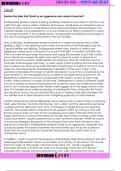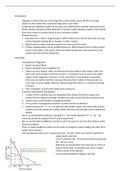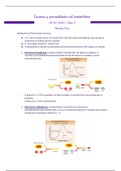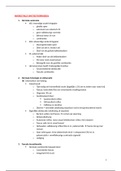Tybalt
Explore the idea that Tybalt as an aggressive and violent character?
Shakespeare presents Tybalt as being extremely impulsive and violent in ‘Romeo and
Juliet’ through using a variety of literary techniques. Tybalt plays an interesting role as
someone who is quick to incite tensions and violence between the Montague and
Capulet families. He is presented to us as the audience as being consistently in need
of proving his loyalty to the Capulet family, consequently his impulsive nature plays a
key role in prolonging the strife between the two families.
Early in the play, Shakespeare presents Tybalt as a violent character who is often
seeking a fight. In the opening scene when the servants of the Montague and the
Capulet families are fighting, Shakespeare makes clear Tybalt is a violent and
aggressive character by having him try to join in the fight. In contrast with Benvolio,
who is actively trying to keep the peace and urging the servants to put their swords
down, Tybalt encourages the fight and wants to draw his sword. In response to
Benvolio’s plea for peace, Shakespeare has Tybalt say ‘Peace! I hate the word as I
hate hell, all Montagues and thee’. In other words, Tybalt is stating that he hates the
idea of peace as much as he hates the idea of being sent to hell and as much as he
hates the Montague family. Shakespeare’s repetition of the word ‘hate’ in this
quotation emphasises the anger in Tybalt’s character. It is as if he is consumed by the
hate he feels for the Montagues and is unwilling to consider resolving the feud. An
Elizabethan audience may have sympathised with Tybalt’s actions as fights and
conflict were common in society at the time. Shakespeare’s choice to present Tybalt
as such a hateful character the first time the audience meets him foreshadows later
events, as it could be argued that Tybalt’s hate triggers all of the tragic events in the
play. The modern-day audience develop the feeling that key characters like Tybalt
are important actors who accentuate the cycle of violence that exists between the
two families due to their impulsive and unforgiving approach to their enemies.
Tybalt is presented as being deliberately provocative and he seems intent on inflicting
harm upon Romeo. He states that Romeo ‘art a villain’ and this declarative sentence
coupled with the diminutive term ‘boy’ is intended to trigger Romeo into reacting
violently. This reveals Tybalt is impulsive as he appears intent on having a duel with
Romeo and he does not care for the consequences in spite of the fact that by this
stage, the Prince of Verona informed both families that if there is further conflict they
would face death. Tybalt is presented as a stark contrast to Romeo. Whilst he is quick
to insult and disregard the gravity of the situation that may ensue, Romeo is calm,
logical and collected. Shakespeare presents Tybalt as an aggressive character who
quickly escalates the tensions between the two families and we as the audience
sense that he is one of the key characters that prolongs the conflict due to his
unforgiving nature.
In addition, Tybalt’s sense of impulsiveness is interestingly depicted as being in line with
stereotypical Elizabethan ideas of masculinity and chivalry. In the extract, he reveals
that he is angry at ‘the injuries / That thou hast done me.’ Tybalt’s hyperbolic
expression reminds us that he has held onto his grudge at the fact that Romeo
attended the Capulet ball and appeared to woo Juliet. We sense that he has a very
®
Copyright © 2022 Revision Guru | All rights reserved





